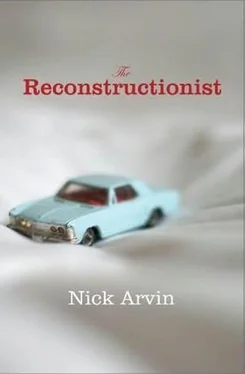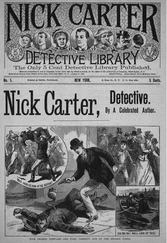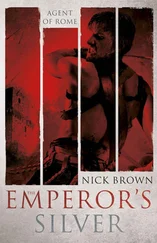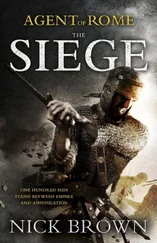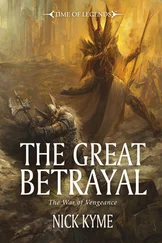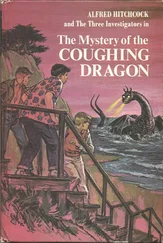He ran the model a few times, and the accident enacted itself again and again in shifting pixels, perfectly silent. The computer offered that at impact Christopher’s car had been travelling at 42.3 mph; the other car at 49.1 mph. By hand Ellis calculated his brother’s initial velocity before he had begun laying down tyre marks, and came up with 46 mph, give or take a couple of mph, a speed not unexpected on that road, a speed that might even be considered cautious, since Ellis had observed many vehicles breezing through at around 60 mph. Perhaps Christopher had slowed while he was involved with some distraction. But one might formulate endless speculations.
He had no evidence whatsoever as to whether Christopher had entered the intersection under a green, yellow or red light. Witnesses often provided the only available evidence about light timing, and here the witness statements recorded in the police report, from the occupants of vehicles that had been approaching the intersection, were all against Christopher. The report mentioned that Heather had been at the scene at the time of the accident and described her injuries, but it didn’t include any witness testimony from her.
He tried to think, what had he gained from this analysis?
Nothing presented itself. This sort of analysis was needed to make a credible presentation in a courtroom, but he probably could have estimated the results to within a few mph beforehand.
Could Boggs have seen something in this that he had missed?
He turned through the photos again. It seemed perhaps the airlane had come to a stop a few feet further off the kerb than he had represented it in his scene diagram. He moved the point of rest in PC-Crash and began readjusting parameters. It took him an hour to clean up the simulation again, but in the end it only made a half an mph of difference.
He went through the photos yet again, and again, until although his eyes focused on the images he seemed not to see anything, and he was tempted to think that by memorising them completely he might forget them.
He returned to the house. He was lying flat on the floor when he heard Heather’s car in the drive. Seeing him, she started, then laughed. ‘You’re all right?’ She passed through the room, her steps jarring faintly through the floor into his skull. After a few minutes she returned, barefoot – he couldn’t see her feet but knew by the sound.
‘Can you get up?’
‘It’s all right,’ he said.
‘I find you like this,’ she said, ‘and I worry that you’ve been on the floor all afternoon.’
‘It’s only been a moment,’ he said. ‘It’s not uncomfortable.’ Sun through a window beat warmly on his foot and ankle. He monitored the effort of the rise and fall of his chest as he breathed. ‘It’s a very nice floor,’ he offered.
She frowned, but sat cross-legged beside him.
He felt his heaviness pressing him to the floor and, in a way gratifying to observe, it held him here and his weight implied his substance, his existence.
He pushed himself up – surprising how little effort it took – and put his head in her lap. She stroked the hair at his temples. ‘You’re OK,’ she said, in a tone that didn’t seem to seek an immediate response. He closed his eyes and lay feeling his weight and her fingers and thinking to himself that he loved her. And, he didn’t quite trust her. He wanted to ask her about that, but the words too were dense and did not like to rise.
The next step would be to go to see his father, but he hesitated.
He made coffee and watched the arabesque of the milk and its subsequent slow diffusion. He put ice in a glass of water and grew lost in the transmutation of solid into liquid. Everything worked this way, one thing always becoming another, powered by entropy. In the nights when he rose to pace the house it contained a faint, nameless smell that Boggs must have carried on his clothes, because at times it sucker-punched Ellis, forcing memories of awful vividness. And despite a general sense of slowness, whenever he looked at a clock minutes seemed to have passed with startling speed.
‘My brother -’ From time to time those two words came of themselves into his mind, the beginning of a sentence or thought that went no further. Sometimes it felt like a message delivered incompletely, sometimes it felt like a failure in himself, and sometimes he seemed to be thinking about Christopher only to realise that the image he had in his mind was of Boggs. And he still saw the form of James Dell strike the windshield and press into it and saw, or imagined – because he knew that he had shut his eyes – the glass flex and the cracks form and run to all directions like a growth of shining crystals.
Heather asked what kind of jobs he was looking at. Engineering, he said, the only field he had qualifications in. ‘Accident reconstruction?’ He said no. They ate dinners with the television on, so that the quiet would be less conspicuous.
As far as he knew, his father still had Christopher’s airlane . To see it he would need to see his father, and he didn’t want to see his father.
In the mornings he woke before her, but waited, listening to her slow breath. Eventually she pulled up her legs and curled her face down toward them, as if in a last effort to gather into sleep and fend off the day. Then she stretched. He rolled over and moved to hold her a minute before she slipped out of bed. He made coffee and put on a kettle of water for her tea while she showered. He stirred milk into her tea and handed it to her while she ate a bowl of cereal. He asked about what she would do that day. As she finished a bowl of cereal, her spoon knocked noisily against the bottom of the bowl. She carried her bowl to the sink. She moved toward the front door, efficiently gathering her things along the way. He watched her go with a knife working inside himself.
* * *
Heather had given him a cellphone, so that she could reach him, and he had had his old number reassigned to it. It surprised him every time it rang.
‘I’m having a bad time,’ said Mrs Dell. ‘I don’t want to bother you. But I thought it might help to talk.’
He went to visit. Although Mrs Dell’s house stood directly beside an industrial-looking railway embankment that crossed the road on a concrete bridge, her neighbourhood was filled with pleasant little houses on large lawns. Mrs Dell’s was a yellow house with green shutters behind tall trees and several flower beds – a patch of hostas under a blue spruce, towering sunflowers near the road, clusters of roses and others around the house. The rubber mat at the front door said ‘Welcome’, and a brass plaque attached to the door frame said ‘Solicitors will be composted’. He rang, and she opened the door squinting into the sun glare and smiling with the corners of her lips. She appeared puffy under the eyes. But she had her hair neatly in place and wore pants, blouse and vest in matched patterns of white, grey, and black. She led him into a pink sitting room shadowed and crowded with photos and knick-knacks, set him on an overstuffed love seat, and sat across from him on the front edge of a high-backed wooden rocking chair, leaning with her elbows on her thighs. She began to say something, then laughed, looked away, began again. ‘This is silly. I shouldn’t have dragged you here.’
He shook his head. ‘I didn’t know you were a gardener.’
‘Only a few flowers.’ She looked at the window. ‘The hostas have a slug problem. The thing to do about slugs is to put out pans of beer, and they will drown themselves.’
‘My mom liked flowers,’ Ellis said. ‘But when I was growing up the entire lawn around our house was covered with concrete.’
‘A city?’
‘Small town, a sort of semi-rural place. Dad worked for a concrete contractor.’
Читать дальше
